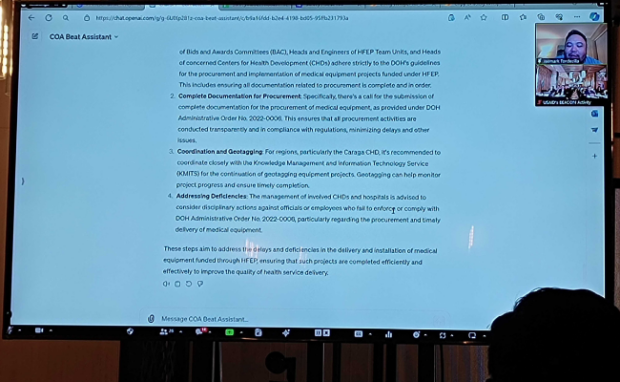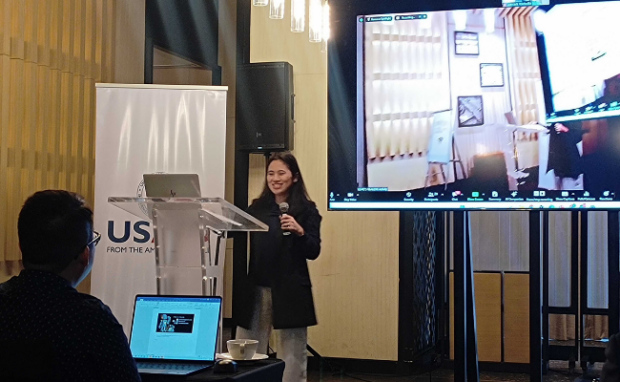USAID kicks off 1st part of AI Workshop
USAID is helping various countries to develop and prosper. With the rise of ChatGPT and artificial intelligence (AI), it becomes clear that adopting AI is one of the most important methods for doing so.
The US organization has been focusing on improving internet access in the Philippines with its BEACON (Better Access and Connectivity) Project. Nowadays, it seems that the Pearl of the Orient will shine brighter with AI adoption.
That is why USAID launched the first part of its AI Workshop in the SEDA Hotel on Thursday, April 11, hosted by USAID BEACON consultant Carlo Adgamag.
Start of the AI workshop

PCC Executive Director Kenneth V. Tanate delivered the opening remarks before former GMA News editor-in-chief Jaemark Tordecilla gave his introduction to generative AI.
READ: NASA laser comms test succeeds ‘first light’
He warned the audience that this technology has many risks by sharing recent related issues. For example, the Nieman Fellow for Journalism shared the multiple lawsuits OpenAI faces due to alleged copyright violations.
Tordecilla covered politicians who had AI-generated misinformation about them spread on the Internet. Then, he warned the journalist audience that prominent figures may use AI to deny incriminating information.
The former chief editor calls it The Liar’s Dividend:
“…as the public becomes more aware about the idea that video and audio can be convincingly faked, some will try to escape accountability for their actions by denouncing authentic audio and video as deepfakes.”
Then, he said that artificial intelligence has benefits, too. We must be aware of the Jagged Frontier, which represents the ever-changing applications of artificial intelligence.
We discover tasks that we could do with AI and those that cannot. Eventually, we realize the technology could work with previously unsuitable tasks and vice-versa.
How did the demonstration work?

The best way to do so is to learn more about the technology. That is why Tordecilla listed a few AI models and demonstrated their creations.
Later, he started the hands-on AI workshop with Whisper, OpenAI’s audio transcription model. Tordecilla shared a copy that lets everyone use the tool for any video.
Afterward, he demonstrated how ChatGPT can help in data analysis. He asked everyone to answer a survey and then submitted its Google Sheet to ChatGPT.
Tordecilla was using GPT-4, which answered questions about the file. For example, he asked, “What is the mean and median age of the respondents?”
It also generated graphs and scatter plots for the data. Next, he demonstrated his “COA Beat Assistant,” the model he made using GPT-4.
He asked it to make observations in his PhilHealth audit report file. Then, he asked it to expound on a specific observation.
The last part involved testing Microsoft Copilot. He asked the participants to drag the file onto the Microsoft Edge browser.
Then, the audience entered, “Generate content summary.” Later, they commanded Copilot to answer specific questions about the file, such as “Can the Philippines afford the cost of climate adaptation?”
In response, the bot said the country has allocated $10.2 billion for March 2022, but it must designate more funds to fight climate change.
Jaemark Tordecilla admits he’s not an expert in the field. The technology is so new that there aren’t any experts in this field yet.
Fortunately, now is the best time to learn more about it.
AI workshop closing remarks
After the demonstration, National Economic and Development Authority Undersecretary Krystal Uy gave the closing remarks. She acknowledged AI’s benefits, but regulators must be wary of its risks.
More importantly, they must implement laws that will ensure its proper use. Then, she informed the audience that other countries are doing the same.
Uy said the BEACON Project is crucial to national AI adoption because it will enable more Filipinos to benefit from this digitalization.